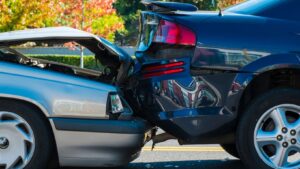How Does PIP Insurance Work In Pennsylvania?
Personal Injury Protection (PIP) insurance in Pennsylvania is intended to help cover medical expenses and other
What Is Personal Injury Protection (PIP)?
In Pennsylvania, PIP and “First-party benefits” (FPB) are often used interchangeably to describe the auto insurance coverage motorists must carry. This type of insurance is essential because it pays for financial losses regardless of who caused the crash.
PIP covers medical costs in the event of an accident. In some cases, it can also help with lost wages or funeral expense coverage if the accident results in a death. It’s important to note that PIP coverage is primarily for medical expenses, not for liability coverage, which is a separate aspect of an auto insurance policy.
Pennsylvania requires drivers to have this car insurance coverage to get financial help quickly after an accident without waiting to determine fault or who the negligent driver was.
Whether referred to as FPB or PIP, they both mean the type of insurance you need to cover your medical expenses after a car accident in Pennsylvania.
What Does PIP Cover?
In Pennsylvania, insurance companies must offer medical coverage up to $100,000. However, you can choose the lower option of $5,000 by filling out a simple form. If you do pick the $5,000 option and get into an accident, your policy will only cover up to $5,000 for medical bills.
Some insurance providers offer medical coverage higher than $100,000. You can also add the extra coverage options below to your policy, which come in different amounts to suit your needs:
- Medical costs: This includes hospital stays, surgeries, doctor visits, rehabilitation needed for recovery, and other medical treatment.
- Lost income: After an approved claim, PIP covers lost wages if you cannot work due to injury.
- Funeral costs: Coverage includes funeral expenses for burial or cremation in case of a fatal accident.
- Accidental death benefit: A lump sum payment is provided to beneficiaries if someone involved in an accident dies within 24 months from their accident-related injuries.
- Extraordinary medical benefits: Extra coverage is provided for expenses beyond the standard PIP limits, ensuring protection for serious injuries requiring extensive care. This option enhances your coverage by raising the maximum claim amount above the usual $100,000, often with a lifetime limit of $1 million.
Keep in mind that PIP benefits do not cover vehicle damage, other property damage, injuries to drivers or passengers in other vehicles involved in the accident, or any non-economic damages such as pain and suffering.
What Is the Minimum PIP Coverage in Pennsylvania?
In Pennsylvania, the minimum amount of PIP coverage you must carry is $5,000. This means that if you’re involved in an accident, your own insurance will cover up to $5,000 in medical expenses and lost wages. However, many people buy more than the minimum amount to ensure they have enough coverage for more serious injuries. It’s important to understand your options and pick a PIP policy that best fits your needs.
How Does PIP Coverage Work?
If you’re hurt in an accident, your PIP coverage can help cover hospital bills, doctor visits, and rehabilitation costs. Sometimes, it can also pay for transportation to medical appointments or home care if you can’t care for yourself. PIP is especially helpful because it ensures you can get medical treatment quickly without worrying about who is to blame for the accident, providing you with peace of mind in uncertain times.
In Pennsylvania, Is PIP Coverage Required?
Pennsylvania is 1 of 12 no-fault states that require PIP coverage. Under Pennsylvania law, all drivers must have PIP insurance with at least $5,000 in coverage.
How to File a PIP Insurance Claim
If you are involved in a car accident in Pennsylvania and need to file a PIP claim, there are several steps you should follow to ensure a smooth and efficient process:
- Gather Documentation: Collect all the documentation related to the accident, including medical care bills, receipts, and reports from healthcare providers.
- Notify Your Insurance Company: Contact your insurance company as soon as possible to inform them about the motor vehicle accident and your intent to file a PIP claim.
- Complete Claim Forms: Your insurance company will give you the appropriate claim forms. Take your time and complete these forms accurately and thoroughly.
- Submit Supporting Documents: With the claim forms, submit any relevant supporting documentation to your insurance company. This may include medical bills, receipts, and any other evidence of your expenses.
- Await Review and Approval: Once your insurance company receives your claim, they’ll review it and may request additional information if needed. Upon approval, you will receive the benefits to cover your eligible expenses.
Personal Injury Lawsuit Options
While PIP coverage in Pennsylvania helps with medical and accident-related costs, it might not be enough for serious injuries. You can pursue a personal injury lawsuit to seek additional compensation. This is important if you have severe injuries that need extensive medical care, long-term rehab, or result in permanent disability. Pursuing a lawsuit can also help cover non-economic damages such as pain and suffering, which PIP does not cover.

In pursuing a personal injury lawsuit, you can seek financial compensation for medical bills, lost wages, pain and suffering, and sometimes additional damages if the at-fault driver was particularly reckless. Your car accident lawyer at Munley Law will fight for the the full compensation you need to recover and support yourself in the future.
Posted in Car Accidents.








